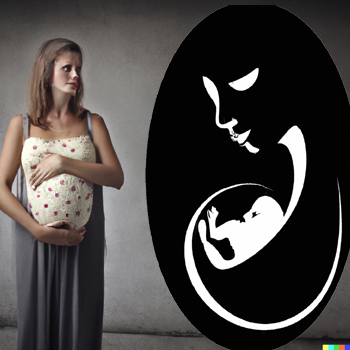Assisted Reproductive Technology (Regulation) Act, 2021 is a legislation that has been passed by the Indian Parliament to regulate the various assisted reproductive technologies (ARTs) being practiced in the country. The Act aims to ensure the safety, quality, and effectiveness of these technologies, which are increasingly being used by couples struggling with infertility.
Infertility is a common problem faced by many couples around the world, and ARTs have been a crucial solution for them. These technologies include in vitro fertilization (IVF), intracytoplasmic sperm injection (ICSI), and other related techniques that help in the conception of a child. However, the unregulated nature of these technologies in India had led to several issues, including unethical practices, exploitation of vulnerable couples, and lack of transparency.
The Assisted Reproductive Technology (Regulation) Act, 2021 aims to address these issues and bring about transparency and accountability in the ART industry. The Act establishes a national regulatory authority called the National ART Registry, which will be responsible for registering and regulating all ART clinics and banks in the country. It also lays down guidelines for the registration of ART clinics and banks, the qualifications and experience of ART practitioners, and the facilities and equipment required for these practices.
The Act also puts in place several measures to ensure the safety and quality of ART procedures. It mandates the use of informed consent forms, the maintenance of proper records, and the provision of adequate counseling to couples seeking these services. It also prohibits certain practices, such as the sale of human eggs and sperm, surrogacy for commercial purposes, and the use of ART for sex selection.
One of the major highlights of the Act is its emphasis on the rights of the child born through ART. The Act stipulates that the child born through these technologies has the same rights as a child born through natural means, including the right to know his or her biological parents. It also prohibits the sale and purchase of children born through ART and mandates the maintenance of proper records and documentation for such children.
Here are some of the important highlights of the Assisted Reproductive Technology (Regulation) Act, 2021:
- National ART Registry: The Act establishes a national regulatory authority called the National ART Registry, which will be responsible for registering and regulating all ART clinics and banks in the country. The Registry will also maintain a database of all ART clinics and banks, along with the qualifications and experience of their practitioners. It will also be responsible for enforcing the provisions of the Act and ensuring compliance with its provisions.
- Registration of ART clinics and banks: The Act lays down guidelines for the registration of ART clinics and banks, which includes the minimum qualifications and experience required for practitioners, the facilities and equipment needed for these practices, and the maintenance of proper records and documentation. The Registry will issue a certificate of registration to eligible clinics and banks after inspecting their facilities and verifying their compliance with the Act’s provisions.
- Prohibited practices: The Act prohibits certain practices in the ART industry, including the sale of human eggs and sperm, surrogacy for commercial purposes, and the use of ART for sex selection. It also prohibits the sale and purchase of children born through ART and mandates the maintenance of proper records and documentation for such children.
- Rights of the child: The Act stipulates that the child born through ART has the same rights as a child born through natural means, including the right to know his or her biological parents. It also provides for the appointment of guardians for such children in case the biological parents are unable to fulfill their responsibilities.
- Offenses and penalties: The Act specifies various offenses and penalties for non-compliance with its provisions, including the cancellation of registration, fines, and imprisonment for serious offenses. It also provides for the establishment of a grievance redressal mechanism for individuals affected by any violation of the Act’s provisions.
- Informed consent: The Act requires that all ART clinics and banks obtain informed consent from couples seeking these services. The informed consent form must contain information on the risks and benefits of the procedure, the probability of success, and any potential complications. It must also contain information on the rights and responsibilities of the couple and the child born through ART.
- Counseling: The Act mandates the provision of counseling to couples seeking ART services. The counseling must cover a range of topics, including the various ART options available, the risks and benefits of each option, the probability of success, and the potential complications. It must also cover the rights and responsibilities of the couple and the child born through ART.
- Maintenance of records: The Act requires that all ART clinics and banks maintain proper records and documentation of all ART procedures, including the informed consent forms, counseling sessions, and the medical history of the couple and the child. These records must be kept confidential and should be made available to the couple and the child upon request.
- Advertising: The Act prohibits the advertising of ART services in any form, including through print, electronic, or social media. It also prohibits the use of any misleading or false statements or representations in the advertising of these services.
- Ethical committees: The Act requires the establishment of ethical committees in all ART clinics and banks to ensure compliance with the Act’s provisions and to resolve any ethical issues that may arise. The committees will be responsible for reviewing and approving all ART procedures and for ensuring that they are conducted in accordance with the Act’s provisions.
The Assisted Reproductive Technology (Regulation) Act, 2021 is a comprehensive legislation that aims to bring about regulation and oversight in the ART industry in India. Its provisions aim to ensure the safety, quality, and effectiveness of these technologies, while also protecting the rights of children born through these means. The Act is a timely legislation that addresses the longstanding issue of infertility and helps couples fulfill their dream of starting a family. Overall, the Assisted Reproductive Technology (Regulation) Act, 2021 is a comprehensive legislation that aims to bring about regulation and oversight in the ART industry in India. Its provisions aim to ensure the safety, quality, and effectiveness of these technologies, while also protecting the rights of children born through these means.
Suggestions to Overcome Potential Shortcoming
Here are some suggestions for overcoming the shortcomings of the Assisted Reproductive Technology (Regulation) Act, 2021:
- Expand access: The act does not provide for access to assisted reproductive technologies for all individuals, but only for those who are married and in a heterosexual relationship. This excludes single individuals and members of the LGBTQ+ community from accessing these technologies, which may be discriminatory. The act could be amended to allow for access to assisted reproductive technologies for all individuals, regardless of their marital status or sexual orientation. This would ensure that these technologies are available to everyone who may benefit from them.
- Review eligibility criteria: The act imposes strict eligibility criteria for individuals seeking to use assisted reproductive technologies, including requirements related to age, physical and mental health, and infertility. These criteria may exclude some individuals who may otherwise benefit from these technologies. The act’s eligibility criteria could be reviewed and revised to ensure that they are fair and not discriminatory. For example, the age limits for accessing assisted reproductive technologies could be relaxed, and criteria related to infertility could be more clearly defined.
- Provide clarity: The act lacks clarity on some key issues, such as the definition of “infertility” and the process for determining eligibility for assisted reproductive technologies. This could lead to confusion and inconsistency in the application of the act. The act could be amended to provide more clarity on key issues, such as the definition of “infertility” and the process for determining eligibility for assisted reproductive technologies. This would help to ensure that the act is applied consistently and fairly
- Address ethical concerns: The act does not address some ethical concerns related to assisted reproductive technologies, such as the issue of surrogacy and the rights of surrogate mothers. The act could be amended to address ethical concerns related to assisted reproductive technologies, such as surrogacy and the rights of surrogate mothers. This could involve setting clear guidelines and safeguards to ensure that these technologies are used ethically and responsibly.
- Increase regulation: The act does not adequately regulate the use of assisted reproductive technologies, leaving room for potential abuse and exploitation. It does not provide for the oversight and monitoring of these technologies, which could lead to problems such as the sale of gametes or embryos. The act could be amended to provide for greater regulation and oversight of assisted reproductive technologies. This could include measures such as the establishment of a regulatory body to monitor the use of these technologies and ensure compliance with the act.
Overall, the Assisted Reproductive Technology (Regulation) Act, 2021 is a timely legislation that aims to bring about much-needed regulation and oversight in the ART industry in India. It aims to ensure the safety, quality, and effectiveness of these technologies, while also protecting the rights of children born through these means. The Act is a welcome step towards addressing the issue of infertility and helping couples fulfill their dream of starting a family. At the same time it will be more important for policymakers to carefully study and consider above suggestions and make other potential changes to the Assisted Reproductive Technology (Regulation) Act, 2021 in order to ensure that it effectively regulates assisted reproductive technologies and protects the rights of individuals who use them.
Adv Mikky Sudhakaran







